 Publishing veteran Larry Dorfman reflects on a shift in his publishing path.
Publishing veteran Larry Dorfman reflects on a shift in his publishing path.
Nine months ago, after a successful career in publishing that spanned more than 30 years, I suddenly found myself unemployed. That moment, which remains hauntingly clear, made me question so many things, going back to the beginning of my career.
It was the early '80s. After working in the thriving record business (still vinyl back then!), and a very brief stint working for a regional department store chain (anybody remember Caldor's?), I started my book career as a road warrior for Avon Books. My territory spanned Connecticut, Rhode Island, half of Massachusetts and parts of upstate New York. A lot of miles. A lot of Red Roof Inns. A lot of very bad fast food.
I loved every minute. I met great people in the book business, many of whom remain good friends. Something new happened every day. And while there were many hours battling traffic, weather, car problems and missed appointments, I was practically my own boss and my time was basically my own. Sure, there were call reports and quotas and business levels to maintain--not to mention the occasional over-achiever regional manager who would disrupt everything and then move on to a bigger job leaving everyone else to reassemble the pieces. But it was a good life in what was once called "The Gentleman's Industry." I was a Road Rep... a Book Traveler.
Eventually, I was enticed to move to Penguin. Hardcovers! Trade paperbacks of substance! A backlist with over 20,000 titles! Classics! Remember the days when the bookstore classic departments were seas of orange Penguin spines? My territory changed, but much of it was similar and familiar. The same love of books and bookselling. Great independent bookstores. Cambridge alone had over 20! This was well before the chains began to proliferate. The warehouse clubs hadn't happened yet. And there was no Amazon.
I did that for a few years and won some sales awards. I even got my picture in the local papers for what was the beginning of the "dying breed" articles. But the writing was on the wall, so to speak, and I realized that I needed to make a change. I went to New York City to become national accounts manager at Penguin. I started calling on Barnes & Noble (B. Dalton was still the major part of that company, but the superstore concept was beginning to grow) and Ingram. Took a train every day from New Haven. Two and a half hours. Then a subway to Houston and Hudson Streets. Sold Stephen King's books and watched them dominate the bestseller lists. Suffered through the Salman Rushdie debacle (bomb scares and all). It was very exciting, and I loved it.
More changes came. I left Penguin for S&S and took on Waldenbooks when the company was still in Stamford, Conn. At S&S, I went through the "Bell Curve" hysteria and sold Stephen King's books (again). But I began to burn out on the train and the commute, so I came to Connecticut to head national sales at a very small regional publisher, which I helped turn into a medium-sized regional publisher. But the lure of New York City and the big book was strong. I took a job at Abrams and the wonderful world of beautiful art books. I moved up, became a director. Rode through the beginning of the Wimpy Kid juggernaut. Then I came back to Connecticut as a v-p. Wrote books in my "spare" time. The plan had worked (as if there had been a plan). Steady upward progression--bigger and bigger desks doing what I love to do in the business that was my life.
Then I lost my job.
During the next nine months, I applied and interviewed for at least three dozen positions in publishing. I heard the same story at most of them. "You're really overqualified." "Too high level for what we're looking for." "Not sure what the job entails yet." And so forth.
However, that all seemed to go away when the word "digital" came into play. Every day seemed to bring a new listing for an "experienced" digital sales rep. Or manager. Or director.
My first reaction? The technology as a mainstream entity is barely three years old. How much "experience" can they expect?
My second reaction? This is clearly the future. Find something that will get you into that world.
Then Jim Allen called me about Book Connect, a Canadian company that had a new platform for content management that was affordable for small publishers. We met and agreed to a freelance position: I would represent them in the U.S. Now, much of my time is spent becoming familiar with the ins and outs of the program and learning how to identify and find solutions for my customers. And given the newness of this new chapter of the publishing business, the need is great.
BEA is this week. I will attend as a representative of Book Connect. I'm excited again. Besides the opportunity to reconnect with many old friends, see the new titles (I can't help it, I still get excited) and talk with like minds in an industry I love, it's an opportunity to be part of the change in that industry. Surrounded by people that still believe the printed word is viable and important. Be it on paper or in the ether.
So, looking back at all those years, all those experiences, all those jobs--I guess they were wrong. You know, those folks who first voiced that familiar idiom.
You can teach an old dog new tricks.









 Speaking at a Hay Festival Business Breakfast panel yesterday, James Daunt, CEO of U.K. bookstore chain Waterstones, said, referring to the company's recent announcement it will
Speaking at a Hay Festival Business Breakfast panel yesterday, James Daunt, CEO of U.K. bookstore chain Waterstones, said, referring to the company's recent announcement it will  A year after a report harsh summer working conditions at Amazon's Breinigsville, Pa., fulfillment center, where ambulances were sometimes parked outside on hot days, "warehouse workers say the
A year after a report harsh summer working conditions at Amazon's Breinigsville, Pa., fulfillment center, where ambulances were sometimes parked outside on hot days, "warehouse workers say the 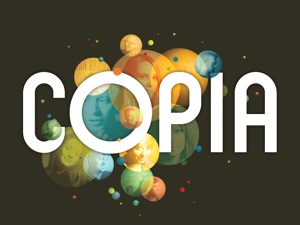 With Google eBooks ending its role as the main source for independent booksellers to sell e-books online, effective at the end of January, one of the companies stepping up to provide an option for indies to sell e-books is
With Google eBooks ending its role as the main source for independent booksellers to sell e-books online, effective at the end of January, one of the companies stepping up to provide an option for indies to sell e-books is  On
On 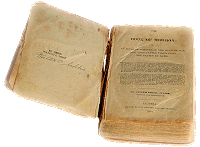 A rare original edition of
A rare original edition of 


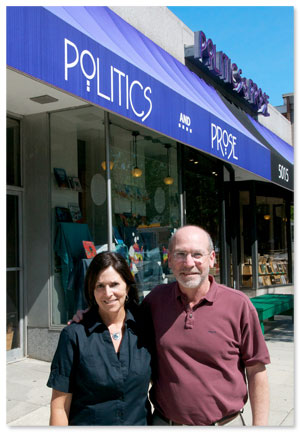 Bradley Graham and Lissa Muscatine, who purchased
Bradley Graham and Lissa Muscatine, who purchased 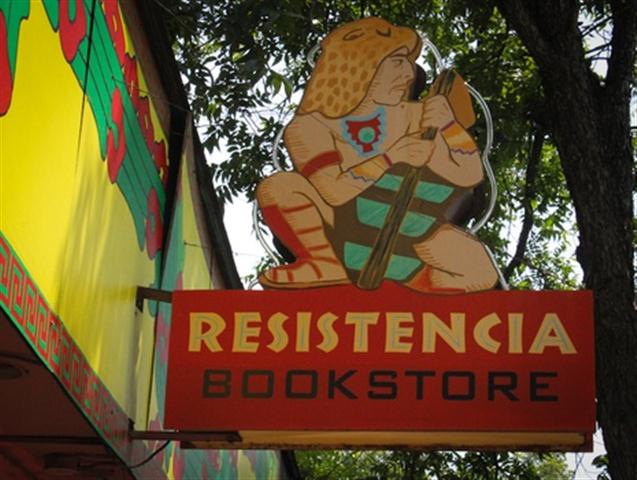 Describing the shop as a "
Describing the shop as a "
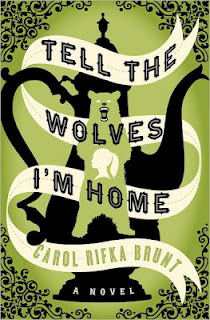 Through destruction people grow in Carol Rifka Brunt's debut novel, Tell the Wolves I'm Home. A painting meant to bring siblings together does so only after they deface it. A sister makes peace with her brother through losing him. And hearts heal by breaking.
Through destruction people grow in Carol Rifka Brunt's debut novel, Tell the Wolves I'm Home. A painting meant to bring siblings together does so only after they deface it. A sister makes peace with her brother through losing him. And hearts heal by breaking.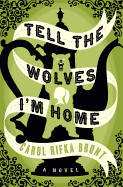
 Publishing veteran
Publishing veteran